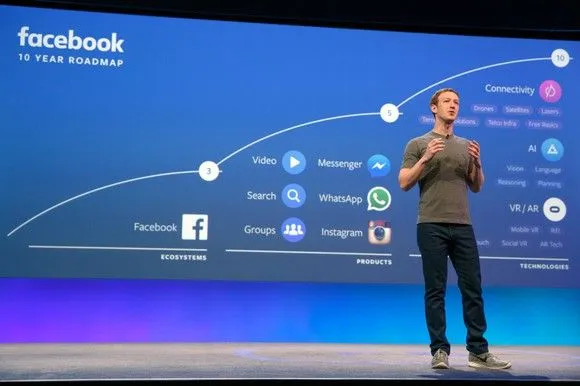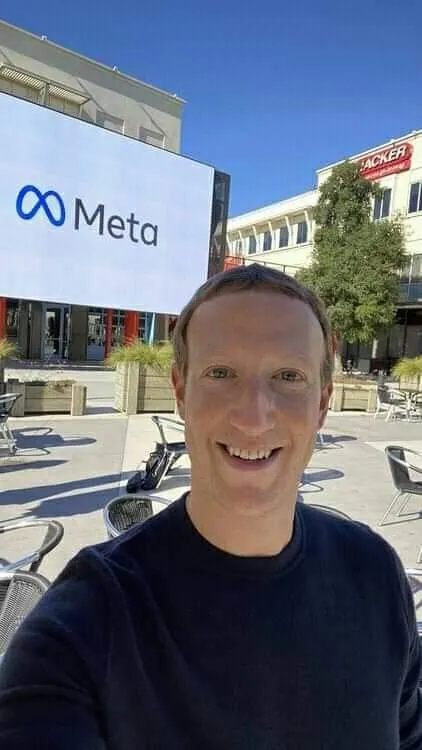

Is Your Privacy at Risk? Inside the Data Breaches Plaguing Facebook and Instagram
Social media has become an integral part of our daily lives, with platforms like Facebook and Instagram shaping the way we communicate, share content, and interact with the world. However, behind the glossy surface and the endless scrolling lies a series of scandals and internal issues that have the potential to drastically alter the future of these platforms. So, what’s really going on beneath the surface? Why are these social media giants, once seen as invincible, now facing unprecedented challenges? Let’s dive in.
Data Scandals: What Are Facebook and Instagram Really Holding on To?
One of the biggest scandals Facebook has faced involves the controversial data breach known as the Cambridge Analytica scandal. While this was a major event, it was only the tip of the iceberg. Over the years, both Facebook and Instagram have been criticized for their handling of user data, with many accusing the platforms of collecting and storing personal information without clear consent from their users. This data harvesting has raised serious concerns about privacy and the security of the billions of users’ personal information. The fact that third-party companies can access this data without stringent oversight has only amplified these fears.
In addition to the Cambridge Analytica scandal, there have been numerous smaller, but equally concerning, instances where personal data has been compromised. This has led to public outcry and several lawsuits and investigations, including from the Federal Trade Commission (FTC), which has fined Facebook billions of dollars. The continued revelations about how these platforms treat user data have eroded trust and raised alarms about the need for stronger privacy protections.
The Algorithm Controversy: Are Facebook and Instagram Manipulating You?

The algorithm behind platforms like Facebook and Instagram is another source of controversy. Many users feel that these platforms intentionally manipulate what they see in order to drive more engagement and increase advertising revenue. The way the algorithms work, prioritizing certain types of content, can create an echo chamber, reinforcing biases and polarizing opinions.
While both platforms claim that their algorithms are designed to improve user experience by showing relevant content, there is an increasing concern that these algorithms are designed primarily to keep users hooked for as long as possible. This has led to criticisms about the psychological toll of social media, especially among teenagers and young adults. Studies have shown that Instagram, in particular, has a damaging effect on the mental health of its younger audience, making them more likely to experience issues such as anxiety, depression, and body image problems.
The manipulation of content has also sparked debates over the platforms’ role in shaping public opinion, particularly during elections or major political events. The ability of Facebook and Instagram to influence voters through targeted political ads has raised ethical concerns about the potential for election interference and undue influence.
The Battle with Fake News: Can Facebook and Instagram Be Trusted?
Fake news is another area where both Facebook and Instagram have been heavily criticized. These platforms have faced widespread accusations of allowing misinformation to spread unchecked, particularly in the wake of major political events like the 2020 U.S. presidential election. Despite efforts to combat false information, these platforms have struggled to effectively moderate content, with many users still encountering misleading or outright false claims in their feeds.
While Facebook has introduced various fact-checking initiatives and Instagram has rolled out features to warn users about misleading content, the problem persists. The sheer volume of content being posted daily makes it nearly impossible to catch every instance of fake news. Furthermore, many users believe that these platforms aren’t doing enough to combat the spread of disinformation, especially when it comes to highly sensitive topics like the COVID-19 pandemic or vaccination debates.
The algorithms that prioritize engaging content also tend to push sensationalist headlines and fake news to the forefront, making it harder for users to differentiate between legitimate news and misleading stories. This has led to growing frustration, not only from the public but also from journalists, fact-checkers, and regulatory bodies.
Mental Health and Social Media: The Dark Side of Facebook and Instagram
While social media platforms like Facebook and Instagram offer an opportunity to stay connected with friends and family, they are also contributing to an alarming rise in mental health issues, particularly among younger users. Instagram, in particular, has been called out for its role in promoting unrealistic beauty standards, contributing to low self-esteem and body image issues.
Despite Instagram’s recent efforts to address these issues, such as introducing features to hide likes and promoting positive messages, the platform remains a major source of stress for many of its users. The pressure to maintain a perfect image on social media has led to an increase in anxiety, depression, and other mental health concerns, especially among teenagers and young adults.
Research has shown that frequent use of Instagram, in particular, is associated with higher levels of social comparison, where users feel the need to measure their self-worth against the seemingly perfect lives of others. This can create feelings of inadequacy and lead to a decline in mental well-being.
The Future of Facebook and Instagram: What Lies Ahead?
Given the growing number of scandals, controversies, and lawsuits surrounding Facebook and Instagram, many are questioning what the future holds for these platforms. Can they recover from the damage done to their reputations, or will they eventually fade into obscurity?
Facebook has already started shifting its focus toward the metaverse, hoping to create a new, immersive digital world. However, whether this ambitious vision will succeed remains to be seen. As for Instagram, the platform continues to face challenges in retaining user engagement and combating the spread of misinformation. The emergence of new social media platforms, like TikTok, which offer different user experiences, could also threaten Facebook and Instagram’s dominance.

What is certain is that the days of Facebook and Instagram reigning supreme are numbered. The public’s trust in these platforms has been eroded, and their ability to maintain relevance in an ever-changing digital landscape will depend on how they address the scandals and issues that have plagued them for years.
Conclusion: Can Facebook and Instagram Be Saved?
While Facebook and Instagram are still two of the largest and most influential platforms on the internet, their future is uncertain. The scandals surrounding user privacy, data security, mental health, and fake news have cast a dark shadow over their reputation. If these platforms are to regain the trust of their users, they will need to make significant changes in the way they operate, particularly in terms of transparency, privacy, and content moderation.
As we continue to rely on these platforms to connect with others and share our lives, it remains to be seen whether Facebook and Instagram can adapt to the changing landscape of social media or if their turmoil will ultimately lead to their decline. For now, users will have to remain vigilant, questioning the role of these platforms in their lives and the broader digital ecosystem.


















